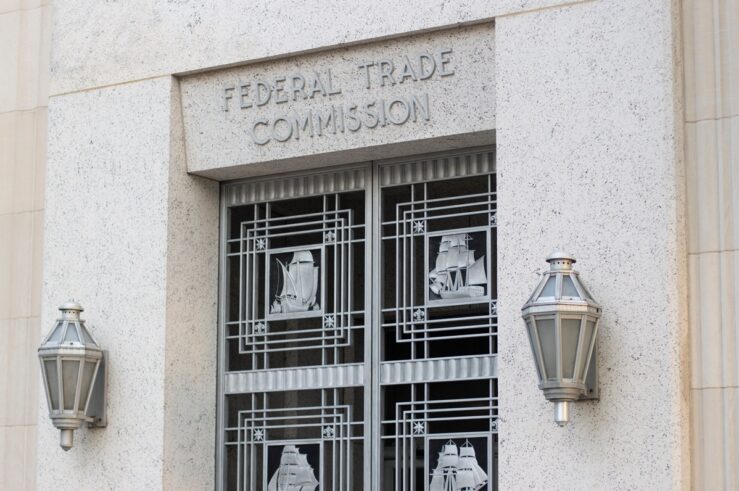This article is a part of the Symposium on the Apple E-Books Antitrust Case: Implications for Antitrust and for the Economy symposium.
The “magic” of Washington can only go so far. Whether it is political consultants trying to create controversy where there is basic consensus, such as in parts of the political campaign, or the earnest effort to create a controversy over the Apple decision, there may be lots of words exchanged and animated discussion by political and antitrust pundits, but at the end of the day it’s much ado about not much. For the Apple case, even though this blog has attracted some of the keenest creative antitrust thinkers, a simple truth remains – there was overwhelming evidence that there was a horizontal agreement among suppliers and that Apple participated or even led the agreement as a seller. This is, by definition, a hub-and-spoke conspiracy that resulted in horizontal price fixing among ebook suppliers – an activity worthy of per se treatment.
The simplicity of this case belies the controversy of the ruling and the calls for Supreme Court review. Those that support Apple’s petition for certiorari seem to think that the case is a good vehicle to address important questions of policy in the law. Indeed, ICLE submitted an excellent brief making just such a case. But, unfortunately, the facts of this case are not great for resolving these problems.
For example, some would like to look at this case not as a horizontal price fixing agreement among competitors facilitated by a vertical party, but instead as a series of vertical agreements. This is very tempting, because the antitrust revolution was built on the back of fixing harmful precedent of per se condemnation of vertical restraints. Starting with GTE Sylvania, the Supreme Court has repeatedly applied modern economic learning to vertical restraints and found that there are numerous potential procompetitive benefits that must be accounted for in any proper antitrust analysis of a vertical agreement.
This view of the Apple e-book case is especially tempting because the Supreme Court’s work in this area of the law is not done. For example, the Supreme Court needs to update the law on exclusive dealing and loyalty discounts to reflect post-GTE Sylvania thinking, something I have written extensively on (including here at TOTM: here, here and here) in the context of the McWane case. (Which is also up for cert review). However, the facts of this case simply make this a bad case to resolve any matter of vertical restraint law. Apple was not approaching publishers individually, but aggressively orchestrating a scheme that immediately raised e-book prices by 30% and ensured that Apple’s store could not be undercut by any competitor. Consumers were very obviously harmed and the horizontal price fixing conspiracy could not have taken place without Apple’s involvement.
Of course in the court of public opinion (which is not an antitrust court) Apple attempted to wear the garb of the Robin Hood for consumers suggesting it was just trying to respond to Amazon’s dominance over ebooks. But the Justice Department and the court quickly saw through that guise. The proper response to market dominance is to compete harder. And that’s what happened. Apple’s successful entry into the e-book market seems to provide a more effective response than any cartel. But this does not show that there were procompetitive benefits of Apple’s anticompetitive actions worthy of rule of reason treatment. To the contrary, prices rose and output fell during the conduct at issue – exactly what one would expect to see following anticompetitive activities.
This argument also presupposes that Amazon’s dominance was bad for consumers. This is refuted by Scalia in Trinko:
The mere possession of monopoly power, and the concomitant charging of monopoly prices, is not only not unlawful; it is an important element of the free-market system. The opportunity to charge monopoly prices–at least for a short period–is what attracts “business acumen” in the first place; it induces risk taking that produces innovation and economic growth. To safeguard the incentive to innovate, the possession of monopoly power will not be found unlawful unless it is accompanied by an element of anticompetitive conduct.
The other problem with this line of thinking is that it suggests that it is OK to violate the antitrust laws to prevent a rival from charging too low of a price. This would obviously be bad policy. If Amazon was maintaining its dominant position through anticompetitive conduct, then there exists recourse in the law. As the old adage states, two wrongs do not make a right.
The main problem with the Apple e-book case is that it is a very simple case that lightly brushes against up against areas of law that and questions of policy that are attractive for Supreme Court review. There are important policy issues that still need to be addressed by the Supreme Court, but these facts don’t present them.
The Supreme Court does have an important job in helping antitrust law evolve in a sensible fashion. But this case is a soggy appetizer when there is a much more engaging main course about to be served. A cert petition has been filed in the FTC’s case against McWane, which provides a chance to update the law of exclusive dealing which the Court has not grappled with since the days of Sputnik (Only a slight exaggeration). And in McWane the most important business groups Including the Chamber of Commerce and the National Association of Manufacturers have explained that the confusion and obscurity in this area and the mischief of the lower court’s decisions create real impediments to procompetitive conduct. Professors of law and economics (including several TOTM authors) also wrote in support of the petition.
The Court should skip the appetizer and get to the main course.




